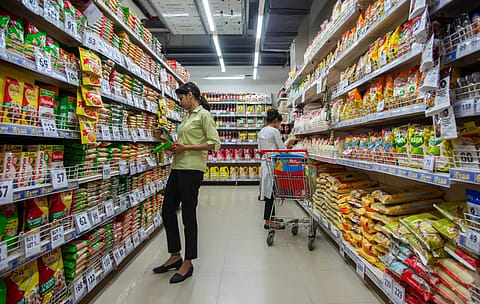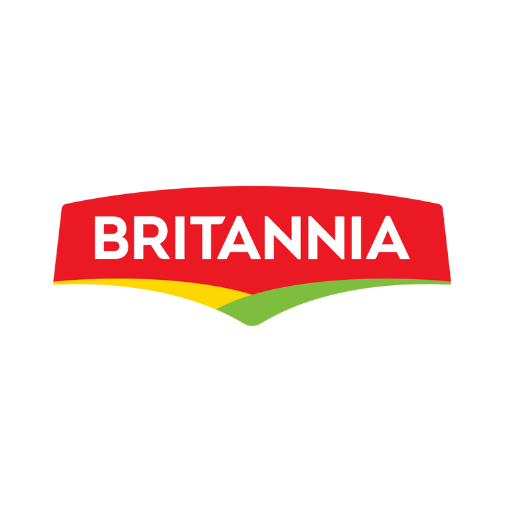Nifty FMCG rallies by 1.7%, Britannia, Colgate Palmolive shares lead

While the benchmark indices are trading in the positive terrain after the GST 2.0 announcements, sectoral indices are showcasing similar trends, with Nifty FMCG rallying by 1.7%, right after Nifty Auto, which is up by 1.74%.
Leading the pack is Britannia Industries, which is up by 4.65%, bringing its share price to Rs 6,181. It reached an intraday high of Rs 6,336, and its market capitalisation stands at Rs 1.47 lakh crore. In the last five days, it has recorded an upside of 5.59%, and 7.15% in the past month.
Right behind are Colgate Palmolive and Emami, rising by 4.08% each, with shares priced at Rs 2475 and Rs 615 apiece, respectively.
The bigger laggards that are pulling the FMCG index down are Godrej Consumer Products and Tata Consumer Products, each dipping by 1.68% and 1.35% respectively.
From the Nifty 50 pack, FMCG companies such as Nestle India, Hindustan Unilever and ITC too are trading in the green. Nestle India is trading above 2.50% at Rs 1224, while Britannia is up by 1% at Rs 2692 apiece.
ITC, which makes most of its profit from cigarette sales, is seeing its share price increase by 1.57%, to Rs 418. This could be attributed to the Finance Minister Nirmala Sitharaman announcing till the time loans taken for compensating the states during the COVID-19 pandemic do not get repaid, items like tobacco-related products will continue to be under 28%. After that, they will shift to 40%.
Companies that make aerated and carbonated beverages, caffeinated and other non-alcoholic drinks would be negatively impacted, as these items have been moved to the new 40% tax slabs. United Spirits was trading lower by 0.78%, Varun Beverages fell by 0.24%, while Globus Spirits recorded a steeper fall of 1.68%.
Recommended Stories
As per a JM Financial Institutional Securities report, the impact of lower GST rates on consumer demand or the profitability of companies will depend on the extent of pass-through by companies. “We expect stocks in all the large beneficiary segments to react positively to this development,” the report stated.
“By cutting rates across a wide spectrum—from everyday essentials and insurance products to big-ticket purchases like automobiles and home appliances—the reforms touch virtually every corner of household consumption. This move not only leaves more disposable income in the hands of consumers but also sets the stage for a broad-based boost to demand," said Mr. Pranab Uniyal, Head - HDFC Tru, HDFC Securities.
According to Uniyal, as these indirect taxes are inherently regressive, which take a larger share of income from the poor and middle class, these reductions deliver disproportionate benefits to these segments, enhancing affordability and strengthening consumption-led growth.

